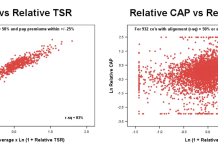European Commissioner for Digital Single Market, Andrus Ansip shares his thoughts on how digitisation is changing both people and society, including disruptive technologies such as blockchain
It is often said how much digitisation is changing people and society and how much it affects every sector of the economy. Technology facilitates access to social and economic services.
People’s awareness is growing – along with their demands and expectations.
With financial technology, for example, one-third of digitally active consumers worldwide use two or more Fintech services, according to Ernst and Young’s Fintech Adoption Index. It is a good reason why, so many industry sectors are investing in new and emerging areas, such as distributed ledger technologies or blockchain.
Disruptive technologies like blockchain can help to reduce costs while increasing efficiency and transparency. They have huge potential for making social and economic transactions more secure online by guarding against an attack and removing the need for any middleman.
Today, most people use a trusted intermediary like as a bank to make a transaction. By contrast, blockchain allows groups of users, like consumers and suppliers, to link directly.
It can be used to record transactions carried out across many computers so that the record cannot be altered retroactively without the alteration of all subsequent blocks and the collusion of the network.
This provides an inexpensive and easy way to verify and audit transactions, which then become traceable and transparent: both essential elements in the fight against fraud.
What I also find inspiring about blockchain technologies is that they can allow mathematics and algorithms to create trust between parties that interact only occasionally, or may not know each other at all. They can co-create and share the database – safely and securely.
In its White Paper on blockchain published last year, the World Economic Forum said that the technology was “pulling us into a new era of openness, decentralisation and global inclusion”. Unlike the internet alone, it said: “blockchains are distributed, not centralised; open, not hidden; inclusive, not exclusive; immutable, not alterable; and secure.” It is early days, but blockchain is definitely moving out of the lab and going mainstream.
Many people know it as the technology that enables cryptocurrencies like Bitcoin and Ether on Ethereum. But blockchain’s potential uses extend far beyond digital currencies.
Blockchain-inspired technologies are being widely discussed around the world and tested across multiple industry sectors – energy, logistics, automotive, health among others – where the potential is being increasingly understood. According to a recent PWC report, more than 77% of financial institutions are expected to adopt blockchain by 2020.
Europe should see it as a new opportunity to innovate in services, to create businesses and new models. While it is too early to make firm predictions, blockchain can be expected to enable new enterprises to form, while transforming others. It will certainly create new jobs.
We should be ready to take up all opportunities that these technologies can provide, to innovate across many sectors – both public and private – while keeping an eye firmly on proper governance, security, protection of users and transparency. Other countries are already moving ahead.
That is why the EU is funding development of distributed ledger technologies, via the Horizon 2020 research and innovation programme, as well as pilot projects funded by the European Parliament.
We are also funding projects for testing blockchain in handling medical data, in social applications, RegTech and in media applications. This should expand further in 2018 and beyond, as the technology matures with an accompanying rise in interest and demand.
For this to work, a coordinated European approach is essential, rather than a patchwork of national initiatives – and one that is also technically interoperable. Fragmentation among countries will only hold us back as we continue to build a functioning Digital Single Market.
We are launching the EU Blockchain Observatory and Forum to expand our expertise on blockchain development, map existing initiatives, to explore use cases and any barriers to them and to monitor trends and developments. It will also gather all parties involved to address the various implications of blockchain: technical aspects, legal and regulatory concerns, governance and interoperability issues.
We plan to build on Europe’s substantial talent base and excellent start-ups to become a leading world region that will develop and invest in the rollout of blockchain.
First, however, we need to formulate a clear European vision and strategy so that the right environment and conditions are created for EU countries and industry – from large companies to start-ups – to work towards this goal.
Blockchain development is still at an early stage – and Europe is still in a strong position to lead in this area. It is a new opportunity to innovate in services, to create businesses and new models and to be competitive on the global stage. We should not hesitate to do so.
Andrus Ansip

Vice-President, European Commissioner for Digital Single Market
European Commission
https://ec.europa.eu/commission/commissioners/2014-2019/ansip_en











